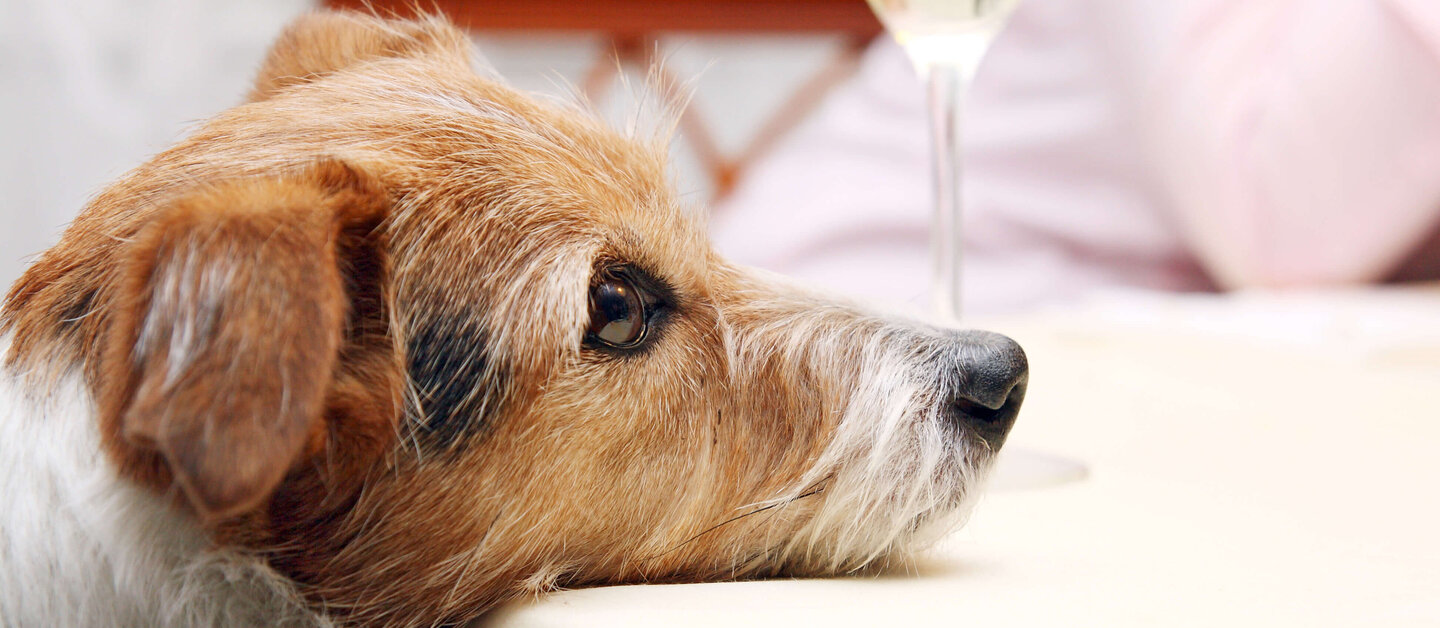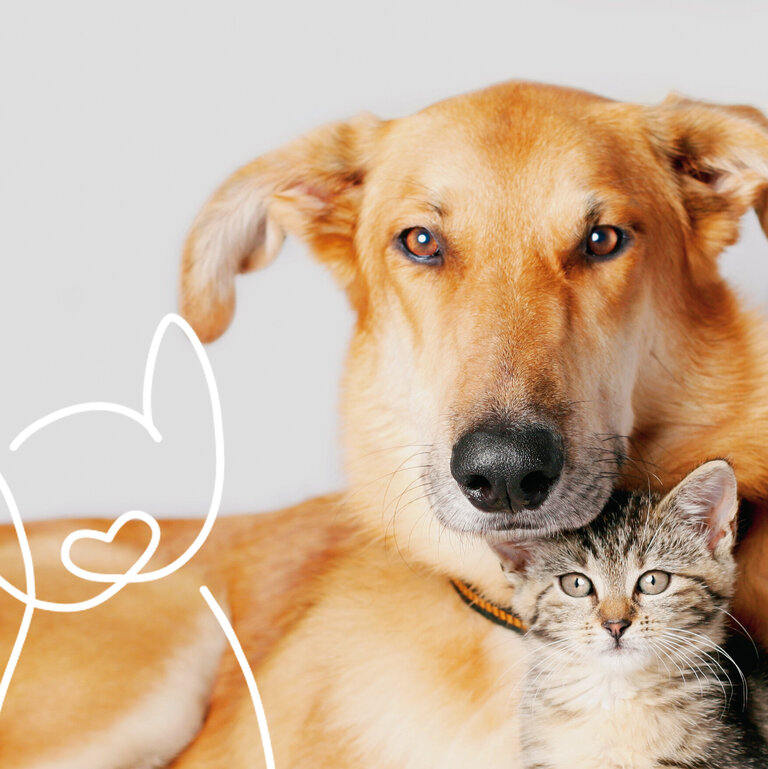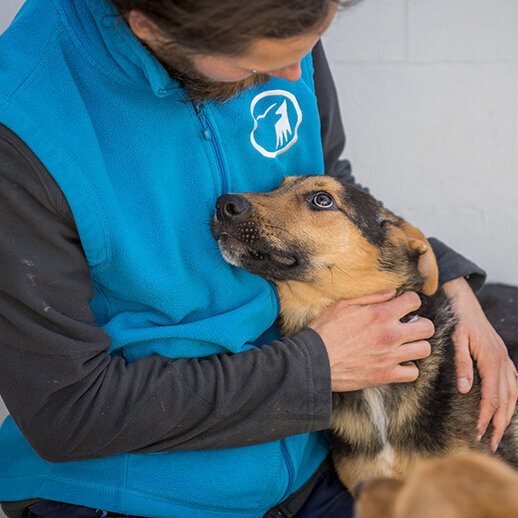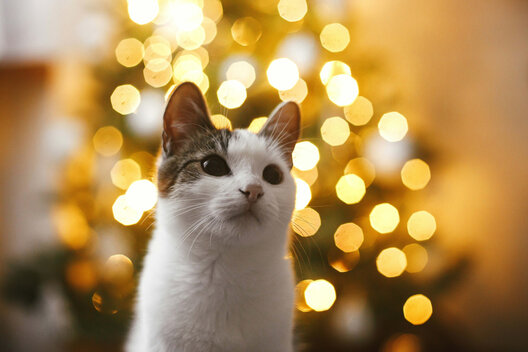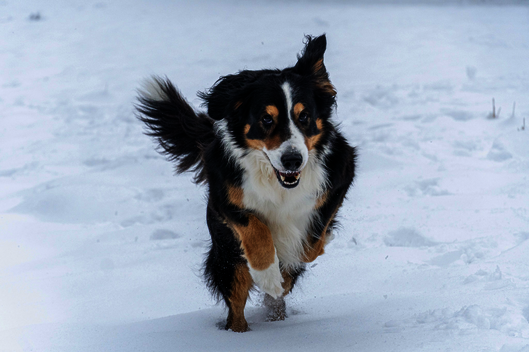New Year's Eve with pets
Fireworks are fun for many people, but stressful for animals. For many pets, the fireworks even cause panic. And in most cases, the bright and noisy explosions are not just limited to New Year's Eve, but are also set off on the days surrounding the turn of the year. To ensure that you and your pets have a good start to the New Year, you can take a few precautions, which we have put together for you.
Why are animals afraid on New Year's Eve?
Dogs and cats are particularly frightened by loud bangs, as they have much more sensitive hearing than humans. If the noise is too strong, it can even lead to permanent hearing damage and behavioral problems such as noise anxiety. At the same time, the sudden, bright lights in the dark at night startle them. The unfamiliar smell also affects them. These components can also lead to panic and stress in small animals such as rabbits and guinea pigs, but also in birds and horses. Even fish react negatively to loud noises. In addition to our pets , this problem naturally also affects wild animals. They are torn from their night or even winter rest by the fireworks. Due to the increased stress and panic, there is a particularly high risk of injury and even death for them. They also use up valuable energy reserves, which they urgently need to survive in the cold season.
What happens to animals during fireworks
Many animals change their normal behavior. Deer, stags and other wild animals are startled. Wild birds fly up, sometimes in large numbers, and can lose their bearings due to fear and stress, fly into obstacles and become seriously injured or even die. This is also problematic for other animal species: panicked animals react differently than usual and are even less able to assess dangers. Cats, for example, may flee into untraceable hiding places or dogs may run in front of moving cars. At the turn of the year 2022/23, our partner animal shelters therefore reported 212 dead and 17 injured animals, including both wild animals and numerous pets.
Labeling and registration help in an emergency
Especially on New Year's Eve, it is essential to identify and register your pets with a registry such as FINDEFIX . Because only with registration is it possible to identify your pet beyond doubt, assign it to you and contact you. If your pet runs away or escapes, you have the best possible chance of finding it again soon. The free service is of course worthwhile all year round, but the number of missing and found animals is particularly high on New Year's Eve: around the turn of the year 2022/23, our partner animal shelters reported 432 of them.
Training and hiding places save stress
Appropriate preparation is important for a relaxed New Year's Eve. Start several weeks before the New Year by creating retreats for your dog or cat that are away from the street and particularly protected. This will allow your four-legged friends to get used to it before things get serious. Speaking of getting used to things: you can also try to desensitize your pet. To do this, contact a vet who specializes in behaviour. The expert will give you tips on how to slowly build up the training. However, there is no guarantee of success for desensitization.
Which sedative for dogs on New Year's Eve?
Medication should always be the last step you take. This is because they can lead to your pet still feeling the fear but not being able to show appropriate behavior. In this case, your pet may appear calm on the outside, but will still experience stress - and in the worst case scenario, this can exacerbate the fear of fireworks. Whether and which medication is at all suitable for your pet must always be discussed individually with the vet. It is worth discussing the problem with them at an early stage. For particularly frightened animals, it can also help to seek the advice of a behavioral trainer. It is essential that you do not give your pet eggnog or other alcohol.
Can I leave my cat alone on New Year's Eve?
Leaving your cat at home alone during the fireworks is not recommended - at least if it is afraid. For most animals, the presence of their caregiver helps them to relax. If your cat has no problem with fireworks and sleeps through the New Year, you can of course celebrate New Year's Eve away from home. Perhaps set up a small pet camera to check how your velvet paw is doing - that way you can react more quickly in case of doubt.
What you can do around the turn of the year
On New Year's Eve itself, you can take the following measures to calm your pet:
- Do not leave your pet alone
- Don't get hectic and keep your pet calm
- At nightfall, lower all blinds and close windows and doors
- Turn up the radio/TV a little louder than usual (be careful with firework noises in broadcasts, especially at midnight!)
- If necessary, offer search/activity games as a distraction from the noise
Take the following tips to heart with dogs around New Year's Eve:
- Secure anxious dogs twice (two leashes, one each for normal and safety harness)
- Do not unleash dogs on walks
- Move walks to quiet areas (e.g. woods, beaches, cemeteries, sparsely populated areas)
- Do not walk your dog on New Year's Eve
- Keep walks short, only go out to relieve the dogs
- Shield your home from noise and light as much as possible
- Create hiding places
- Be there for the dog
- Offer games as a distraction
- Leave the radio/TV on
- Alternative: Spend New Year's Eve on the highway/in areas free of firecrackers, e.g. on the North Sea islands of Föhr, Sylt + Amrum or in towns with thatched roofs/historical town centers
To help your cat through the fireworks, you can do the following:
- It is best not to let outdoor cats out for two to three days before and after New Year's Eve (depending on when they normally return home)
- Shield your home from noise and light as much as possible
- Create hiding places
- Offer games and activities as a distraction
- Leave the radio/TV on
You can also make the turn of the year easier for the little ones - like this:
- Shield your home from noise and light as much as possible
- Cover the enclosure lightproof (with a cloth) and place it away from the street
- For small pets kept outside (e.g. rabbits or guinea pigs), provide plenty of hiding places + secure the enclosure against falling fireworks
- Provide birds in outdoor aviaries with a shelter from falling fireworks (e.g. by covering the aviary), if necessary make unsecured areas inaccessible to birds or alternatively place them in the shelter overnight
- Check aviaries and enclosures for escape protection
Horses are flight animals by nature. Sudden loud noises can therefore cause them to panic and awaken their flight instinct. This can lead to them trying to run away headlong. Here's what you can do for them to combat stress on New Year's Eve:
- Put horses that are not kept in open stables in the stable
- Close windows and doors
- If tolerated, leave the radio and lights on
- Offer animals tasty food as a distraction
- Put particularly skittish horses together with calmer animals
- Check the condition of the horses at short, regular intervals or stay with them
#böllerciao - For a firecracker-free New Year's Eve
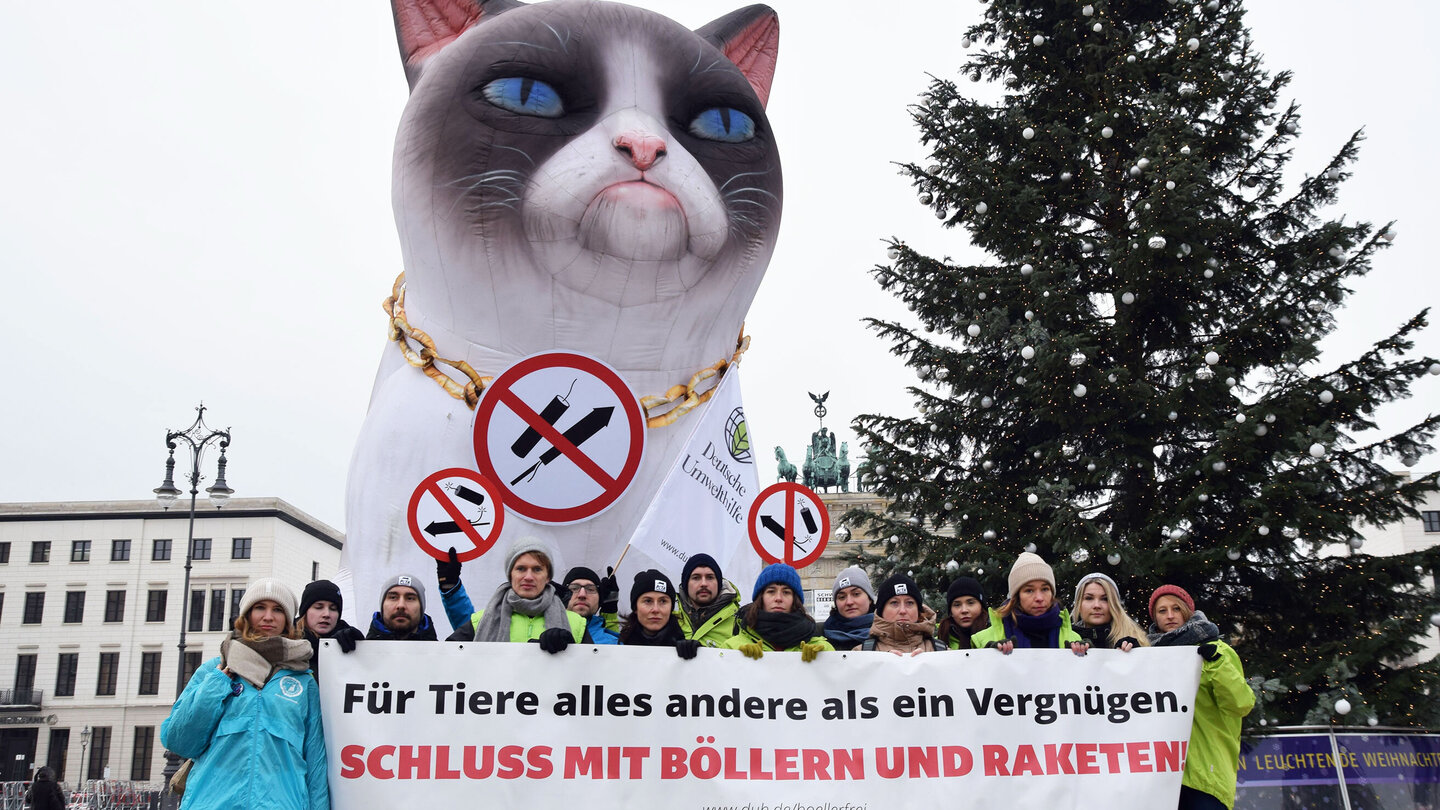
Together with Deutsche Umwelthilfe and many other organizations, we collected 250,000 signatures for a firecracker-free New Year's Eve and then handed them over to the Federal Minister of the Interior, Nancy Faeser.

